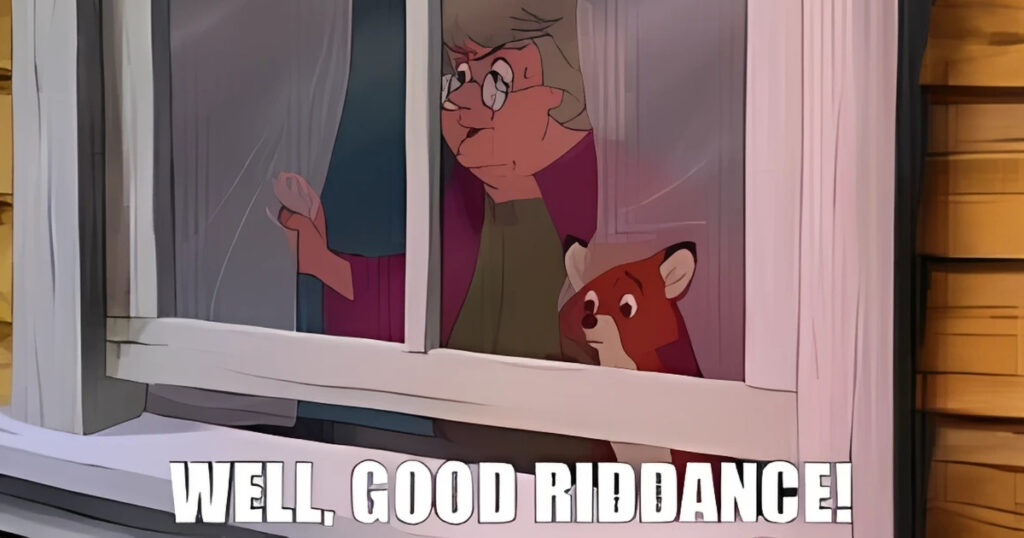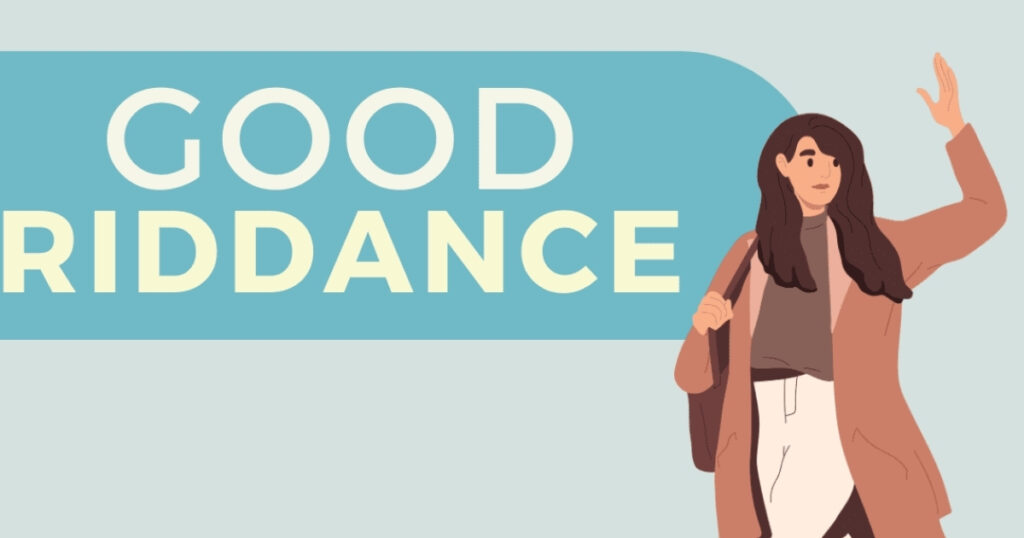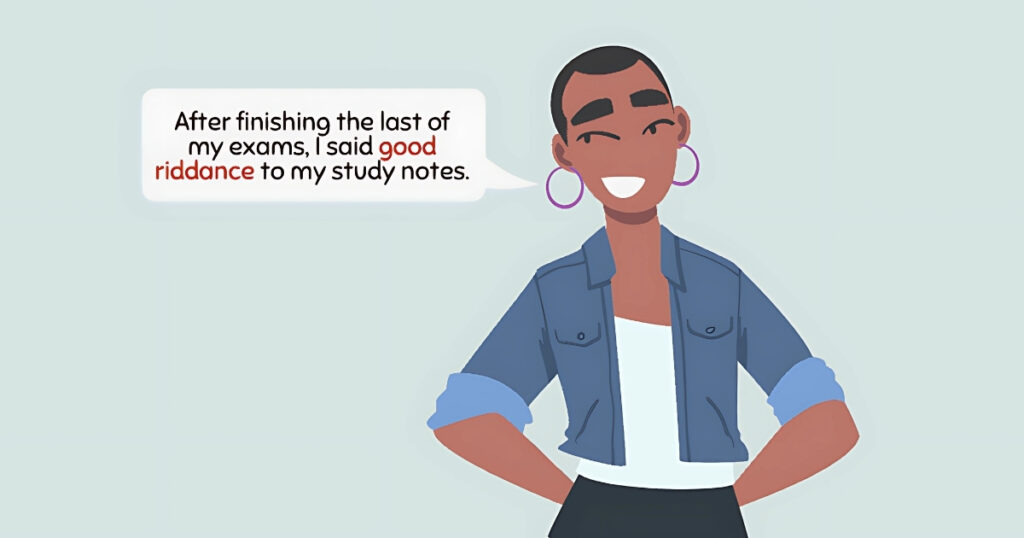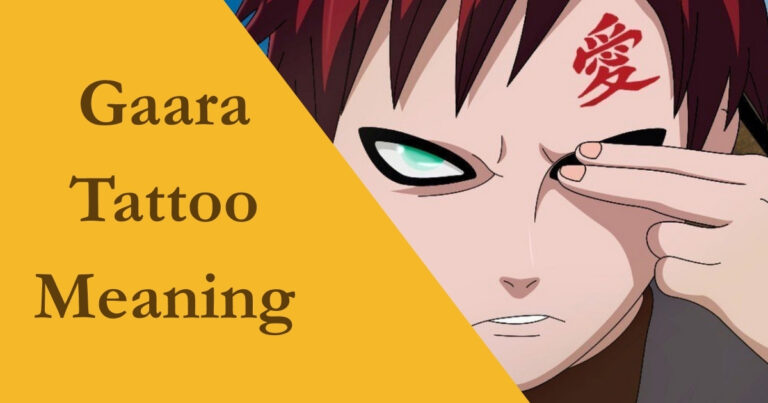Good Riddance Meaning: History, Usage, And Cultural Impact
Some phrases can carry deep emotional weight while also serving as a form of empowerment. One such phrase is “good riddance,” which conveys the relief and joy of moving on from unwanted situations.
Understanding good riddance meaning is essential for anyone looking to articulate their feelings about change and growth. In this article, we will break down its definition, explore its origins, and discuss how embracing this sentiment can lead to a more positive outlook on life.
Understanding “Good Riddance”
It conveys relief mixed with sarcasm, marking the end of unwanted situations. It reflects genuine relief in personal relationships, workplace dynamics, or bad habits, signifying a transition to positivity.

The phrase encourages us to consider the implications of releasing burdens, suggesting personal growth and empowerment. Recognizing the departure of something harmful creates space for new opportunities and healthier environments.
Good Riddance Meaning
This phrase expresses relief and joy at leaving behind unwanted situations or individuals. It signifies the potential for positive change and personal growth. This sentiment follows the removal of negativity from our lives, highlighting the clarity that can emerge.
For example:
- After years of dealing with a toxic work environment, she finally quit her job, feeling a wave of relief wash over her as she declared, “Good riddance!” to the chaos that had once consumed her days.
- When the neighborhood’s loud and disruptive bar closed down, residents couldn’t help but rejoice, exclaiming, “Good riddance!” as they welcomed the peace and quiet that replaced the bothersome noise.
Common Contexts
It commonly appears in contexts such as ending a difficult relationship, leaving a toxic job, or parting ways with negative influences. People might say it when a troublesome situation resolves or when they finally let go of burdensome items.
The phrase conveys a sense of liberation and optimism for the future, signifying that the speaker is glad to be rid of whatever was causing distress. It reflects a positive outlook on moving forward after a challenging experience.
Tone & Emotion
It conveys a sense of relief or pleasure at someone’s departure. It often reflects negative feelings towards the person leaving, indicating that their absence is welcomed. The tone can vary from sarcastic to genuinely pleased, depending on the context.
It suggests that the speaker believes the situation will improve without the individual. The emotion tied to this phrase is one of liberation and freedom from an unwanted presence, encapsulating a desire for positive change.
Also Read: What is a bop female? BOP Meaning Girl
Origin of the Phrase “Good Riddance”
This phrase has a background that is very interesting:

Historical Background
It has its roots in the late 15th century, originating from the word “riddance,” which refers to relief from something unwanted. It was commonly used to express relief at someone’s departure or the end of an unpleasant situation.
It evolved into a colloquial expression used to convey satisfaction when getting rid of something bothersome. The phrase gained popularity in English literature and speech, often used in informal contexts to emphasize a sense of liberation.
Also Read: TIFU Meaning, Origin And Its Examples In 2025
Etymology of “Riddance”
The term “riddance” derives from the Middle English word “ridance,” which means the act of getting rid of something. Its roots can be traced further back to the Old English word “ridan,” meaning to rid or remove.
The prefix “rid” indicates a sense of freedom or liberation from an unwanted burden. Over time, “riddance” evolved to represent the relief felt when something undesirable is eliminated. The expression “good riddance” emerged as a common phrase, emphasizing the joy in parting with something negative.
Famous Early Examples
Early examples of “good riddance” are:
- Literature and folklore feature themes of liberation from unwanted burdens.
- Cultural references illustrate the universal desire to move on from difficulties.
- Celebrations often mark the end of challenging periods or relationships.
- Historical figures expressed joy in parting ways with negativity.
How to Use “Good Riddance” in Conversation
It is an expression used to convey relief at someone’s departure or the end of something undesirable. Here is how you can use it in your conversations:

Also Read: What Does FTFY Mean And How To Use It In 2025?
Casual vs. Formal Contexts
In casual contexts, it can be used humorously or lightly, often among friends. In formal settings, it may come off as rude or disrespectful, so it’s best to avoid it. One might express gratitude for a situation’s conclusion in a more diplomatic manner.
Understanding the context is crucial for using this phrase appropriately, ensuring that it aligns with the tone of the conversation and the relationship between speakers. Always consider how the phrase might be received by others.
Examples of Usage
You can see some of the examples to learn how it is used in conversations mostly:
- Good riddance to that old car, it was always breaking down.
- After the breakup, she said, Good riddance to all the drama!
- He finally quit his job, good riddance to a toxic work environment!
- They cleared out the junk from the attic and thought, Good riddance!
- When the noisy neighbors moved away, we exclaimed, Good riddance!
- She felt relieved, thinking, Good riddance to those negative influences in my life.
- After the storm passed, they said, Good riddance to the fallen branches!
Tone Considerations
The text discusses the importance of tone when using this phrase in conversation. It highlights how tone can significantly alter the meaning and impact of the phrase, which conveys relief or dismissal regarding a person or situation.
The author emphasizes that a sarcastic or overly harsh tone may lead to misunderstandings or hurt feelings, while a more neutral or light-hearted tone can soften the message. The text suggests that being mindful of tone is crucial for effective communication and ensuring that the intended sentiment is conveyed appropriately.
Conclusion
The phrase “good riddance” encapsulates a sense of relief and liberation when letting go of unwanted situations or individuals. It reflects the human desire to move forward and embrace positive change, often after enduring negativity.
Understanding good riddance meaning can empower us to recognize what we need to release from our lives for greater happiness. Whether it’s a toxic relationship or a stagnant job, acknowledging the need for change is the first step toward a brighter future.
FAQs
What does Good Riddance Mean?
It is a phrase used to express relief or happiness that someone or something unwanted is finally gone.
Is Good Riddance Good or Bad?
It’s used when you’re glad to get rid of someone or something annoying, unpleasant, or unwanted. So the feeling behind the phrase is positive (relief), but it’s about a negative person or situation.
Why do you Say Good Riddance?
You say it when you feel relieved or glad that someone or something unpleasant, annoying, or problematic is finally gone.







